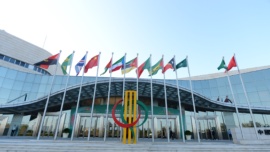Being a politician or a high official is not an easy job.
If we look into what our neighbouring former Chief Executive is facing in the courts and add what is happening to our former Chief Prosecutor in the Last Instance Court we may conclude that all persons in some jobs are great during their term but, suddenly, are devils incarnate who must face justice.
By professional deference, I respect the institutions: courts, governments, legislative bodies. But it seems that whenever someone occupies a certain office, they are at the best above suspicion, without any defects appointed, but, abruptly, they must stand in the dock and face those who have always been allied with them before.
It is something that happens all around the world.
In Portugal, we have a former Prime Minister waiting some two years for a decision on whether he shall face a criminal trial. This only happened after he had been ‘ousted’ by the previous Prime Minister. In Macau, we have a former Public Prosecutor whom no-one suspected, due to the body he headed, of alleged criminal practices.
And here we are, common persons, thinking whether we should trust those who represent us, who should serve the public interest among other things, when what we have is more than one case where such public interest is soon a private interest or a higher interest.
Wherever there is a human being, error exists. The temptations of power are quite extraordinary and may make certain officials consider themselves above the law and immune or exempted from charge or suspicion. Well, during the term of their office, at least. What I cannot understand is why it is that only after people vacate their office are they considered at a glance guilty and the root of all evil.
I recognise that the example of the aforementioned two situations should be something to be taken into consideration by current officials and that a decision of a court to jail a former Chief Executive is a persuasive antidote to the above referred temptations. But, on the other hand, it may also help overly apply the brakes to the actions of incumbent officials who, fearful of zealousness, avoid executing their duties.
This situation should, in the public interest, not occur.























